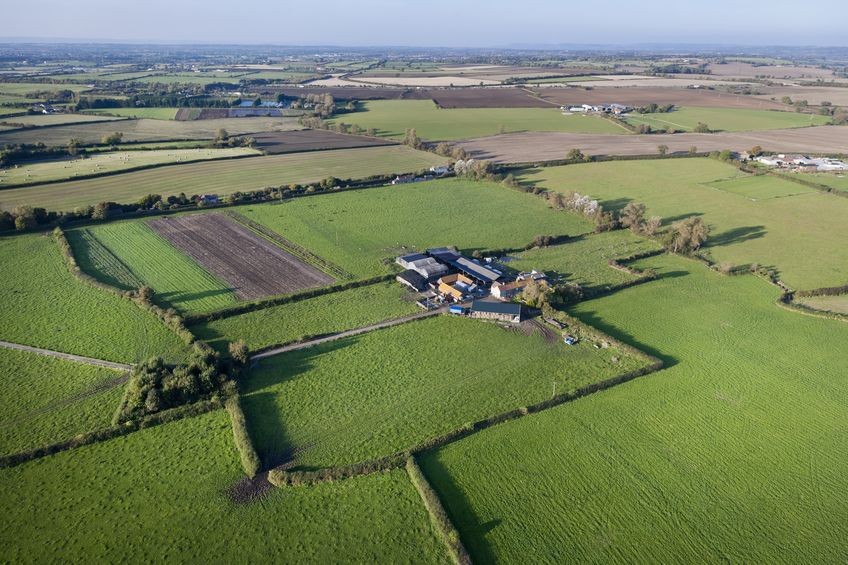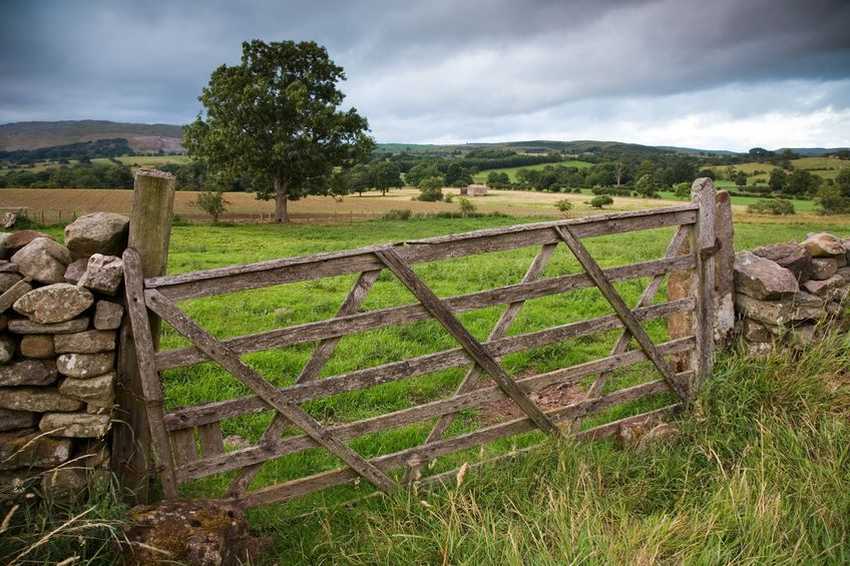'Promises, promises': Inheritance and succession disputes

Arguments over farms are a sign of the times for farming families, and despite testamentary freedom being an established principle of English law, there has been a big increase in the number of cases taken to court, challenging wills made by parents, and over promises made about who inherits the farm.
In this article, Toby Walker, Partner, Allan Janes LLP, and James Davies, Barrister, New Square Chambers, focus on the types of case where the claimants have gone to court.
This is because, they say, their parents or family members have gone back on promises made that they would stand to inherit or succeed to the farm.
The law describes such cases as ‘proprietary estoppel’, essentially the idea that it would not be right or reasonable for the promise-maker to go back on their word.
The farming world seems to be particularly susceptible to such claims, perhaps due to the informal nature of children being involved in working on the family farm, relaxed partnership arrangements, and the traditional expectations of parents - and their children - as to ‘who will inherit the farm when I’m gone’.
These cases may also have increased due to the steep rise over time of land values, particularly in the South East.
The general reluctance of people to discuss money unfortunately means that issues of succession are often not discussed until it is too late.
Farmers need no persuading to work hard and to protect the farm, land or business of which they see themselves as custodians for a future generation.
But perhaps there is more to be done when it comes to planning for succession of the family business, who will inherit the estate, and how to record the basis of the partnership agreement even when, especially when, those partners are family members.
What is proprietary estoppel?
In a successful proprietary estoppel claim, the following ingredients must be established by a claimant:
1. An assurance was made – a promise which raised a reasonable expectation that the claimant will be given an interest in land;
2. The claimant relies on that assurance;
3. The claimant suffers a detriment as a consequence of reasonably relying on the assurance; and
4. It would be unconscionable for the promise-giver to go back on the promise made.
We will consider below how the courts have approached these ingredients in recent cases. If a claim is established, the court can intervene to grant a remedy if it considers it just to do so.
The court’s powers to do so are wide: they range from an award of money so the claimant is not out of pocket, to transferring property into the claimant’s name.
There are some more dramatic awards which demand that the partnerships come to an end and family homes being sold.
Such cases usually entail a long period of uncertainty, legal costs, and tend to deepen the mistrust and strained relationships.
Considered planning, and clear expectations for all involved, have the potential to avoid conflict so far as possible.
What amounts to an assurance?
A decision of the Court of Appeal in Davies v Davies (2016) is important as it has become the guiding authority on the factors the court will consider.
This was a proprietary estoppel claim, based on Eirian Davies’ claim that her parents promised her land and their farming business.
At the age of 17, Eirian Davies was the only child who wanted to take on the family farming business.
Her father, Mr Davies, told Eirian that she would one day have the farm. Eirian understood that she would have to work on the farm, which she did initially for no wages other than board, lodging and money for clothes and leisure.
In 1997, a partnership agreement was drawn up between Eirian and her parents but was never entered into. Eirian was under the impression she was a partner and would be entitled to an equal share in the profits of the business.
Eirian left the farm in 2001, but returned in 2006, to be told on Boxing Day 2007 Mr Davies that the property would be hers to live in for life.
Eirian then worked at the farm for the following four years for lower wages than she would have earned elsewhere.
She was shown a draft will under which she was left the land and a share in the company, but under the will eventually made by Mr Davies she inherited only the shares.
Eirian brought a claim for an interest in the land and business, under the doctrine of proprietary estoppel. She claimed she had been promised land and a share of the business, some £4.4 million.
Had she not worked on the farm, she claimed she would have obtained employment working for shorter hours and better pay, so she had suffered a detriment.
The court found that Eirian was entitled to £1.3million as a reflection of the expectation and detriment Eirian experienced.
Mr and Mrs Davies appealed, contending that £350,000 would be more appropriate.
The Court of Appeal found that, due to a ‘complicated series of different, sometimes mutually incompatible’ expectations over time (she had at points given up on the farm), they awarded her £500,000.
This case of an unfortunate and bitter family dispute goes to show how an interest in land can be created without intention or any formalities.
In one sense, given the stop-start nature of Eirian’s work, interspersed with arguments and storming out, it is may seem surprising the court awarded her anything.
It shows that the court will undertake a forensic examination of the facts and if it finds, as here, an equity has arisen, it will do something about it.
The case of Moore v Moore (2018) was another long-running case which reached the Court of Appeal with the dispute across two generations of the Moore family.
Roger Moore had worked and farmed Manor Farm with his brother since 1966. Roger and Pamela had two children, Julie and Stephen.

Stephen worked on the farm for most of his life. He became a salaried partner in 1998 and an equity partner in 2003. In 2008, they incorporated as Till Valley Contracting Limited.
The shares were held as to 51% by Roger and as to 49% by Stephen.
In 2012, Roger gave notice to dissolve the partnership. Roger brought a claim that the partnership be wound up, and Stephen defended and counter-claimed for proprietary estoppel.
He asked the court to provide him with Roger's interest in the farm, on the basis this was what he had been promised by Roger over the years.
At trial in the High Court, Stephen won. The court said there had indeed been a promise by Roger, and which Stephen had taken to mean that he would inherit Roger's interest in the farm.
Stephen had relied on this to his detriment by virtue of his work on the farm. The judge declared that Stephen had a claim over Roger's interest in the farm, including the partnership and the farm assets.
Roger appealed to the Court of Appeal. Whilst the majority of the High Court decision was upheld, the Court of Appeal differed in the view as to how Stephen's claim should be dealt with.
It wasn’t as simple as trying to mirror the arrangements which Stephen might have expected had the litigation not arisen, because Stephen’s expectation had been getting what he would inherit on Roger’s death, not on the premature ending of the partnership.
The Court of Appeal decision highlights the spectrum of how these claims can be treated by the courts; at the one end, to give effect to the claimant's expectation in its fullness, at the other end, to ensure the claimant is compensated for the detriment they have suffered. This can result in very different outcomes.
What amounts to detrimental reliance?
In the case of Bradbury v Taylor (2012), where the claimant had moved house to another part of the country, and away from family, to provide companionship and care, this was held to be sufficient detriment.
In Lothian v Dixon (2014) the claimants had moved from Scotland to Scarborough to support and care for a family member who later died was held to be sufficient detriment.
This was despite the fact that had the benefit of living at the deceased’s property rent-free.
Both in Eirian Davies' and Stephen Moore's claims above, it was notable that the court does not only take into account financial detriment, but also the significant life decisions made in reliance upon promises, such as choosing not to pursue a better paid job.
In the case of James v James & others (2018) a farmer’s son’s claim to the family farm in Dorset failed.
The claimant had started work on the farm at an early age, and there had been some occasions on which his father had told him that he would be farming the land one day.
However, he also received benefit in the form of bonuses and he later took control of the family haulage business which produced a significant income.
He had also been paid the going rate for farm work and had lived rent-free. The court also considered that a statement of current intentions as to the future was different to the promises one might reasonably rely on.
The court considered that he had not suffered sufficient detriment to support his proprietary estoppel claim.
This was not the classic scenario where someone works for nothing (or very little) on the strength of a promise made that they would inherit the farm.
Judge Matthews gave a helpful reminder as to English law which might, in light of some of these cases, be forgotten: “there is sufficient place in our legal system for a landowner to be able to express a present intention to leave property by will to another person but without making any promise to do so”.
The court said that making a will in favour of someone is not the same as a promise to leave property to that person, and it can be simply a statement of their current intention, which could be changed at any time.
In Gee v Gee (2018), a son who had spent his life working on the farm claimed an interest in the family farm under proprietary estoppel.
The father had initially promised his son would inherit, but later changed his mind.
Their relationship deteriorated and as a result, the father’s interest in the family business and farm was transferred to his other son, who had not previously worked on the farm. This, the son claimed, was reneging on his earlier promise.

The High Court held that over a significant period (some 20 years), the father had made it clear to his son that he would succeed him as owner.
The claimant had worked long hours for less than market wages and had also lost the opportunity to work elsewhere, which the court held to be detrimental reliance.
The interesting point here is that the relationship between the parties, father and son, had never been easy. It was against this background that the claimant said, were it not for the promised inheritance, he would not have stayed on working the family business.
This case shows that even where the person giving the promise changes their mind over time, the need to have that promise honoured (the equity) may already have arisen such that a court rules it would be unconscionable to go back on.
What is a proportionate remedy?
Traditionally, when considering remedies for proprietary estoppel claims, the court would may look at the minimum necessary to do justice. In recent cases, the court has tended to be more generous in their approach to such claims.
It is worth noting that in some of these cases, the claims were brought in circumstances where the people who had made the promises were still alive, and become defendants to the claim.
The court will consider the impact of any decision on those who made the promise. When the promisor has died however, the estate and beneficiaries will be affected, but the courts tend to be more willing to provide more generously for the claimant.
In Guest v Guest (2019), the claim involved how a farm was dealt with in wills made by the claimant’s parents.
It had been intended that the farm property and business would be shared between the defendant’s sons, one of whom was the claimant.
From 1982 to 2015, the claimant worked long hours every week at the farm for low pay. He was joined by his brother in 2005 who took up a full-time position.
Following a dispute between the two brothers in 2014, their partnership ended. Except for retaining a right to occupy a farm cottage, the claimant was disinherited under new wills made by his parents.
In 2017, he was given notice to quit the cottage by his parents and disinherited completely as a result of a further will made by his father.
Until 2014, the claimant’s father had given clear and repeated assurances that he would inherit the farming business, which he had relied upon to his detriment by incurring a significant financial disadvantage.
The court found that the parents had reneged on their assurances to him, and even though he had a role in the dispute with his brother, and was able to seek employment elsewhere, the claimant son had suffered injustice as a result of his father’s actions since 2014.
Interestingly, in arriving at its judgment, the High Court acknowledged that the claimant had a 'shifting expectation' regarding the extent to which he would inherit.
His awareness of his brother sharing in the inheritance did not adversely affect his proprietary estoppel claim, given the assurances made by his parents and the detriment that had resulted from his belief that they would be honoured.
The High Court sought to provide a proportionate remedy. Given the claimant’s expectation that he would only inherit in the event of his parents’ deaths, a lump sum representing 50% of the business and 40% of the farm property was awarded, giving a 'clean break'.

In order to make that substantial payment, the parents needed to sell the family farm.
What steps should farming families take to avoid a dispute?
These cases all illustrate the inherent uncertainty that these disputes can generate.
The disputes often arise when succession has not been provided for and clearly communicated to all the family, or an event occurs which turns the expected course of events on its head.
There really is no substitute for farming families sitting down and talking about the future and understanding the needs and expectations of all those involved, and executing appropriate documents to reflect those plans (be they wills, partnership agreements or declarations of trust).
In summary, despite the right to choose what happens to your estate when you die being a fundamental principle of English law, it is important to recognise and plan for the eventuality that someone could challenge your will.
Whilst no process is bullet-proof to a challenge, there are certain steps which are sensible to take:
1. Talk to your family, and friends and those who you wish to benefit from your estate.
2. Seek advice from a STEP qualified solicitor who can advise you on your will and estate planning
3. Record your reasons for making decisions, especially if what you leave in your will might raise eyebrows or which could have a negative reaction.
This article was written by Toby Walker and James Davies. Toby (toby.walker@allanjanes.com) is a Partner and Head of Dispute Resolution at Allan Janes LLP. James Davies has fifteen years' litigation experience as a barrister specialising in commercial and civil litigation.








